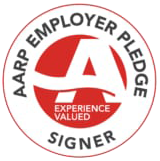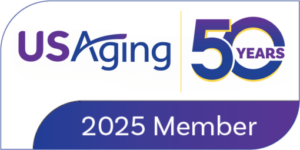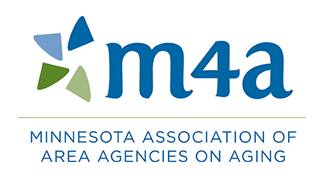Minnesota River Area Agency on Aging (MNRAAA) Awards Over $5 Million in Grants
The Minnesota River Area Agency on Aging, Inc. (MNRAAA) has announced that 26 programs from 20 organizations were granted Title III funding awards totaling more than $5 million. The awards are funded under Title III of the Older Americans Act (OAA) and the American Rescue Plan Act (ARPA).
As a state-designated Area Agency on Aging, MNRAAA administers OAA funds and is responsible for the development of a coordinated and comprehensive system of services for older adults and their caregivers in Big Stone, Blue Earth, Brown, Chippewa, Cottonwood, Faribault, Jackson, Kandiyohi, Lac qui Parle, Le Sueur, Lincoln, Lyon, Martin, McLeod, Meeker, Murray, Nicollet, Nobles, Pipestone, Redwood, Renville, Rock, Sibley, Swift, Waseca, Watonwan and Yellow Medicine Counties. To accomplish this, MNRAAA awards Title III OAA funding to agencies and organizations that provide direct services for older adults (age 60+) and their caregivers.
Congress passed ARPA in 2021 to support older adults and caregivers who are struggling in the wake of COVID-19. Funding under ARPA follows the guidelines established by the OAA.
“MNRAAA is thrilled to announce, for the second year in a row, grants over $5 million! These organizations are assisting in building strong communities where older adults and caregivers can thrive,” MNRAAA Executive Director Jason W. Swanson stated. “The programs assist in keeping older adults and caregivers independent in their homes.”
The following grants have been awarded for 2024:
Title III-B Supportive Services
- Central Community Transit (Kandiyohi, Meeker, and Renville Counties)
- CCT Senior Transportation Program for Transportation and Assisted Transportation
- City of Tyler (Lincoln County, City of Tyler only)
- Tyler Senior Snow Removal for Chore
- City of Worthington/Center for Active Living (Nobles County)
- The Good Life Project for Education/Training and Health Promotion – Non-Evidence Based
- Essential Senior Services (Nobles and Rock Counties)
- Essential Senior Services Chore and Homemaker for Homemaker and Chore
- Generations Home Care Services (Sibley, Renville, and McLeod Counties)
- Generations Homemaker/Assisted Transportation Program for Homemaker and Assisted Transportation
- Granite Falls Living at Home/Block Nurse Program (Chippewa, Renville, and Yellow Medicine Counties)
- Connections for Better Living for Telephone Reassurance, Visiting, Outreach and Health Promotion – Non-Evidence Based
- Interfaith Caregivers (Faribault County)
- Eldercare Program for Chore, Homemaker, Assisted Transportation, and Transportation
- Lutheran Social Service of Minnesota (Big Stone, Brown, Chippewa, Kandiyohi, Lac qui Parle, McLeod, Meeker, Renville, Sibley, Swift, and Yellow Medicine Counties)
- LSS Older Adults Supportive Services Program for Counseling, Outreach, Telephone Reassurance, and Visiting
- Prairie Five Community Action Council (Big Stone, Chippewa, Lac qui Parle, Swift, and Yellow Medicine Counties)
- Connections on the Prairie for Education/Training and Outreach
- Southern Minnesota Regional Legal Services (27 counties of MNRAAA service area)
- Legal Advocacy for Older Persons for Legal Assistance and Legal Education
- United Community Action Partnership (Cottonwood, Jackson, Lincoln, Lyon, Murray, Nobles, Pipestone, Redwood, and Rock Counties)
- Assisting Seniors on the Go for Assisted Transportation
- VINE Faith in Action (Blue Earth, Le Sueur, and Nicollet Counties)
- VINE’s Helping Hands Outreach to Elders from Diverse Cultures for Special Access
- Waseca Area Caregiver Services (Waseca County)
- Caring Hands for Homemaker, Chore, Education/Training and Visiting
Title III-C Congregate Meals and Home Delivered Meals (including Federal Title III-C and other funding)
- Lutheran Social Service of Minnesota (Blue Earth, Brown, Cottonwood, Faribault, Jackson, Kandiyohi, Le Sueur, Lincoln, Lyon, Martin, McLeod, Meeker, Murray, Nicollet, Nobles, Pipestone, Redwood, Renville, Rock, Sibley, Waseca, and Watonwan Counties)
- LSS Congregate and Home Delivered Meals Programs
- Prairie Five Community Action Council (Big Stone, Chippewa, Lac qui Parle, Swift, and Yellow Medicine Counties)
- Prairie Five Congregate and Home Delivered Meals Programs
Title III-D Disease Prevention and Health Promotion Funding Recommendations
- A.C.E. of Southwest Minnesota (Cottonwood, Lincoln, Lyon, Murray, Nobles, Pipestone, Redwood, and Rock Counties)
- A.C.E. Evidence-Based Programs for Evidence-Based Health Promotion Programs
- VINE Faith in Action (Blue Earth, Le Sueur, Nicollet, and Watonwan Counties)
- Finding a Healthy Way through VINE’s Evidence-Based Programming for Evidence-based Health Promotion Programs
Title III-E National Family Caregiver Support Services
- A.C.E. of Southwest Minnesota (Cottonwood, Lincoln, Lyon, Murray, Nobles, Pipestone, Redwood, and Rock Counties)
- A.C.E. Caregiver Support Services for Respite-In Home, Caregiver Counseling, Support Groups and Training
- Bethesda (Kandiyohi and Renville Counties)
- Connect Caregiver Alliance Network for Caregiver Counseling, Support Groups, Training, Supplemental Services – Chore, Supplemental Services – Homemaker, Supplemental Services – Assisted Transportation, and Supplemental Services – Transportation
- Caregiver Response Effort & Service Team (CREST) (Martin County)
- Care Team Support for Caregiver Support Groups, Counseling, Training, and Respite-In Home
- Interfaith Caregivers (Faribault County)
- Caregiver Support and Respite Program for Caregiver Counseling, Training, Respite-In Home, and Respite-Out Home Day
- Lutheran Social Service of Minnesota (Big Stone, Chippewa, Kandiyohi, McLeod, Meeker, Renville, Sibley, and Swift Counties)
- LSS Caregiver Support and Respite Program for Respite-In Home, Respite-Out Home Day, Respite–other, Caregiver Counseling, Support Groups, and Training
- Madison Art Gallery (Lac qui Parle County)
- Madison Caregiver Support Program for Caregiver Support Groups
- VINE Faith in Action (Blue Earth, Le Sueur, and Nicollet Counties)
- Empowering Caregivers through Caregiver Counseling, Support Groups, and Training
- Waseca Area Caregiver Services (Waseca County)
- Caring Hands for Caregivers for Caregiver Counseling, Support Groups, Respite-In Home, and Respite-Out of Home Day
- Wellspring Faith in Action (Watonwan County)
- Family Caregiver Project for Caregiver Support Groups, Training and Respite-In Home
About the Minnesota River Area Agency on Aging
MNRAAA’s vision is to assist older adults to thrive. MNRAAA provides advocacy, information, resources, and assistance so that older adults in southwest Minnesota can maintain the lifestyle of their choice. Learn more about MNRAAA at www.mnraaa.org.




